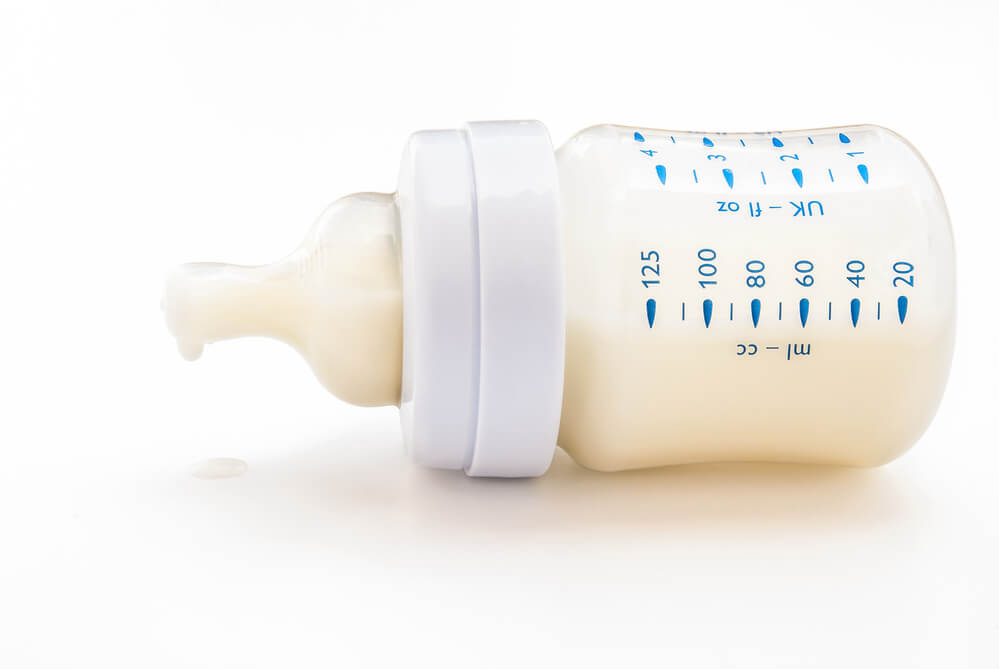The answer to this question depends on the baby, their preference, and their age. Some babies may find it comforting to have a bottle of warm formula.
However, for younger babies who are still gaining an understanding of food temperatures, cold or room temperature formula may be best as it is closer to the breast milk temperature to which they are used.
It’s important to remember that neither warm nor cold formula is better nutritionally than the other. The nutritional content remains the same regardless of how you serve up your baby’s meal.
Some parents may feel more comfortable serving warm Formula but know there is no need to heat the bottle if your baby doesn’t require it.
It’s important to remember that warming formulas can create potential safety hazards such as scalding or burning. It’s also important to make sure the formula isn’t too hot before feeding it to your baby.
If you choose to heat the Formula, never use a microwave to warm the bottle – this could lead to dangerous hotspots that can burn your baby’s mouth.
Instead, either place a sealed container of Formula in a bowl of warm water until it reaches the desired temperature or purchases a bottle warmer specifically designed for warming Formula safely and evenly.
Ultimately, the decision about whether or not you should warm Baby Formula is up to you and your little one – some will prefer it warmed, and others won’t mind cold formula at all! The best way to know what works for your baby is simply by trying it out and seeing how they respond.
And if you do decide to warm the Formula, be sure to take extra care and follow the steps mentioned above to ensure your baby drinks a safe bottle of formula.
What Are the Benefits of Warm Formula?
The warm formula can help to soothe and relax your baby, as well as provide a familiar taste and texture. It can also be easier for them to digest due to its warmer temperature.
Additionally, if you are using powdered or concentrated Formula, warming it can help make sure all of the ingredients mix properly.
What Are the Benefits of Cold Formula?
Cold Formula won’t cause any potential safety hazards as the warm formula may, and it can be great for those hot summer days when you don’t want to heat the house with boiling water or a bottle warmer.
Also, cold Formula is more likely to be closer to room temperature which may feel more comfortable in your baby’s mouth than too-warm Formula.
In the end, it’s all about finding what works best for you and your baby – so experiment with both warm and cold Formula to see what suits your little one. And if you do choose to heat the Formula, always take extra care to make sure it is safe for them to consume.
Does Warming Formula Help With Gas?
Warming Formula may help to reduce the number of air bubbles and gas your baby experiences while drinking. On the flip side, cold Formula can cause your baby to drink faster which can lead to more gas.
So if you find that your baby is experiencing a lot of gas, warming their Formula up a bit before feeding them may help to alleviate this issue. Just be sure not to overheat it as this could cause scalding and burning.
At the end of the day, knowing whether or not you should warm Baby Formula depends on what works best for your family and individual situation – so experiment with both warm and cold Formulas until you find what works for you!
And whatever temperature you decide on, always take extra care to ensure it is safe for your baby. The most important thing you can do is always keep an eye on the temperature of the Formula and make sure it isn’t too hot before serving it up to your little one.
Can You Reheat Formula?
No, it is not recommended to reheat the Formula once it has been prepared. Any formula that has already been heated should be thrown away as soon as the feeding is finished and should never be reheated or reused.
Furthermore, any leftover formula should also be discarded right after a bottle feed, as reheating could cause bacteria to grow and your baby may become ill. Instead, you can prepare a fresh bottle of Formula each time.
In conclusion, there are pros and cons to both warm and cold Formula – so experiment with each temperature until you find what works best for your family.
And if you do choose to heat Formula for your baby, always take extra care by following safety guidelines such as using a container filled with warm water and testing the temperature before feeding.
Ultimately, the decision of whether or not to warm Formula is up to you – so do what works best for your family!














